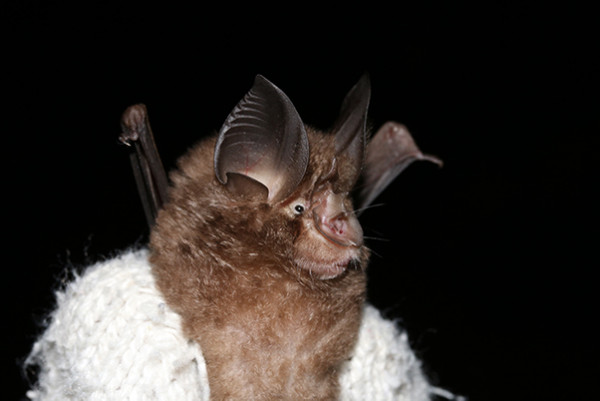Kyoto, Japan -- Here's a fun fact: Japan has more bat species than any other order of mammal in the country, and a third of these are endemic. But the bad news is that 90% of the endemic species are at risk of extinction.
Bats play crucial ecological roles, including in pollination and pest control. But while they have been a focus of research in many fields of science -- including epidemiology -- they remain underrepresented in conservation, particularly in Japan.
Publishing in Mammal Review, researchers from Kyoto University's Graduate School of Informatics describe a systematic survey of the state of Japanese bat research and their analysis of the possible roots of the problem.
The study authors found poor alignment between conservation needs and allocation of research resources. Although research effort has increased gradually since the year 2000, threatened endemic bats remain significantly less studied than their non-threatened counterparts.
"Conservation status alone is not enough to promote research on these threatened species," explains Jason Preble, doctoral candidate and one of the authors of the study.
"We systematically reviewed the literature of the last fifty years, assessing patterns in research distribution across multiple categories in order to identify gaps and future priorities."
The team found a marked shortage of both ecological and conservation-motivated studies in international journals on nearly half of the extant species in Japan. Moreover, while many threats to Japanese bats have been identified, such as forest loss or alteration, there was a shortage of data measuring the impacts of these threats.
"All of these factors are immensely concerning," continues corresponding author Christian E. Vincenot. "We were distressed to see threats such as wind turbines and climate change severely understudied."
Based on their results, the team lists recommendations aimed at strengthening Japanese bat conservation.
"For example, we need to prioritize research efforts that provide the ecological information needed to design and implement concrete conservation plans," Vincenot explains.
Data disclosure is imperative, he continues. Openness not only helps the research community, but provides valuable resources to government officers, NGOs, and non-professional naturalists who are equally key players in a comprehensive conservation strategy.
The authors also emphasize the importance of communicating research findings to the public, which in turn can facilitate support from funding agencies.
"While hopeful signs of improvement exist, ultimately a stronger spirit of research and collaboration -- along with informed conservation practices -- will determine if these creatures can reach the road to recovery or ultimately decline into extinction," concludes Vincenot.

【DOI】 https://doi.org/10.1111/mam.12226
Jason H. Preble, Nobuhito Ohte, Christian E. Vincenot (2021). In the shadow of the rising sun: a systematic review of Japanese bat research and conservation. Mammal Review, 51(1), 109-126.





